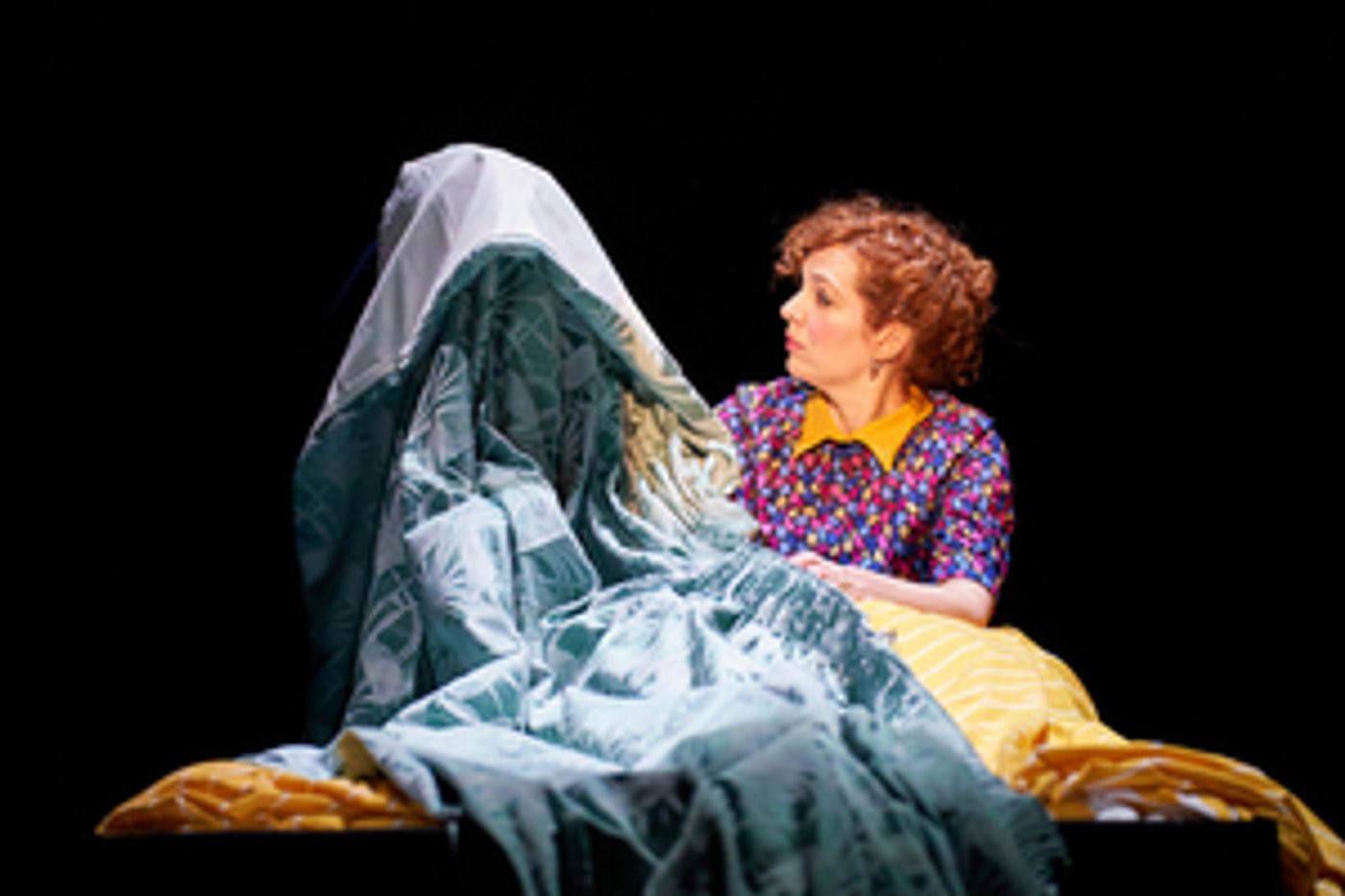Review: SHOE LADY, Royal Court

![]()
E.V. Crowe debuts her new play Shoe Lady directed by the Royal Court's artistic director Vicky Featherstone. Katherine Parkinson returns to the stage as a woman who accidentally loses a shoe on her way to work. What ensues from the incident is a bleak reflection on middle-class anxiety.
Viv is engulfed by her life. The aforementioned shoes (and curtains) grow into a symbol in Crowe's piece: she's afraid she can't show up at her job as an estate agent with missing footwear, and her foot is becoming more and more bloody as her day progresses. On the road, she finds a homeless woman who shares her fate of only having one shoe, and she's shocked.
As she becomes overwhelmed by her unfortunate, catastrophic situation, money talk seeps in. Her husband Kenny (Tom Kanji) is made redundant, they can't afford to give their child any birthday presents, and now her only pair of shoes has become unusable. Yet, by her own admission, they're "Still in Waitrose twice a day".
Poetic and with just enough repetition to get its themes to stick, the script is entertaining but doesn't induce any real pity in the crowd. Parkinson introduces a fragile wife on the brink of despair. Over the course of the 65 minutes, she edges closer and closer until, by the end, she is clearly spiraling into depression.
The undeniable humour in the text has Parkinson bitterly laughing through gritted teeth while Featherstone stifles her with Chloe Lamford's desolate set design. Mostly bare and surrounded by dark walls, the Royal Court's stage seems gargantuan as it smothers Viv. Her own shadows surround her as she hobbles around, bemoaning the precariousness of her existence.
Featherstone's direction is allegoric and sullen as she details Viv's loss of control over her life from the inside of the character, and Parkinson's performance is, in return, precise and delightful. Her micro-expressions and bitter smiles escalate to reveal a person who's been caged by the expectations of her own status and change in political winds. The problem is, this victimisation falls quite flat.
It's hard to feel pity for her and Crowe's play sways between wanting to instigate a social commentary and presenting a comedic picture of a quivering formerly stiff upper lip. This ambiguity in intentions unsettles the reception, starting a bigger argument on priorities and perception. Crowe's analysis of the recent decline of middle class is, however, certainly valid as she highlights the economic strife that goes on behind closed doors.
Her critique also touches upon the notion of the working mother who never feels good enough and whose sacrifices seem worthless. Viv's the breadwinner of the family, but this doesn't clear any of the doubts and insecurities that come with her role as a woman. Her concerns over a lost shoe, then, become emblematic of failing mental health and the lack of support from her nearest and dearest.
The general feeling, as one watches Shoe Lady, is that there's something missing. Viv's polite approach and irony never soar to satire, and her bloodied, vulnerable foot never really packs a punch, so the piece remains like its titular character, self-centred and slightly blind to others.
This said, this brief almost-monologue is still rather significant in the grand scheme of things. Viv's world of talking curtains and unattainable stilettos is vivid in Featherstone's direction, and her point of view is symptomatic of an entire fraction of the population.
Shoe Lady runs at The Royal Court Theatre until 21 March.
Production image courtesy of Manuel Harlan
Reader Reviews
Videos

